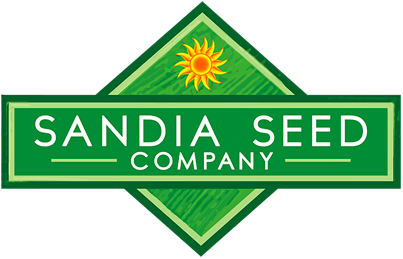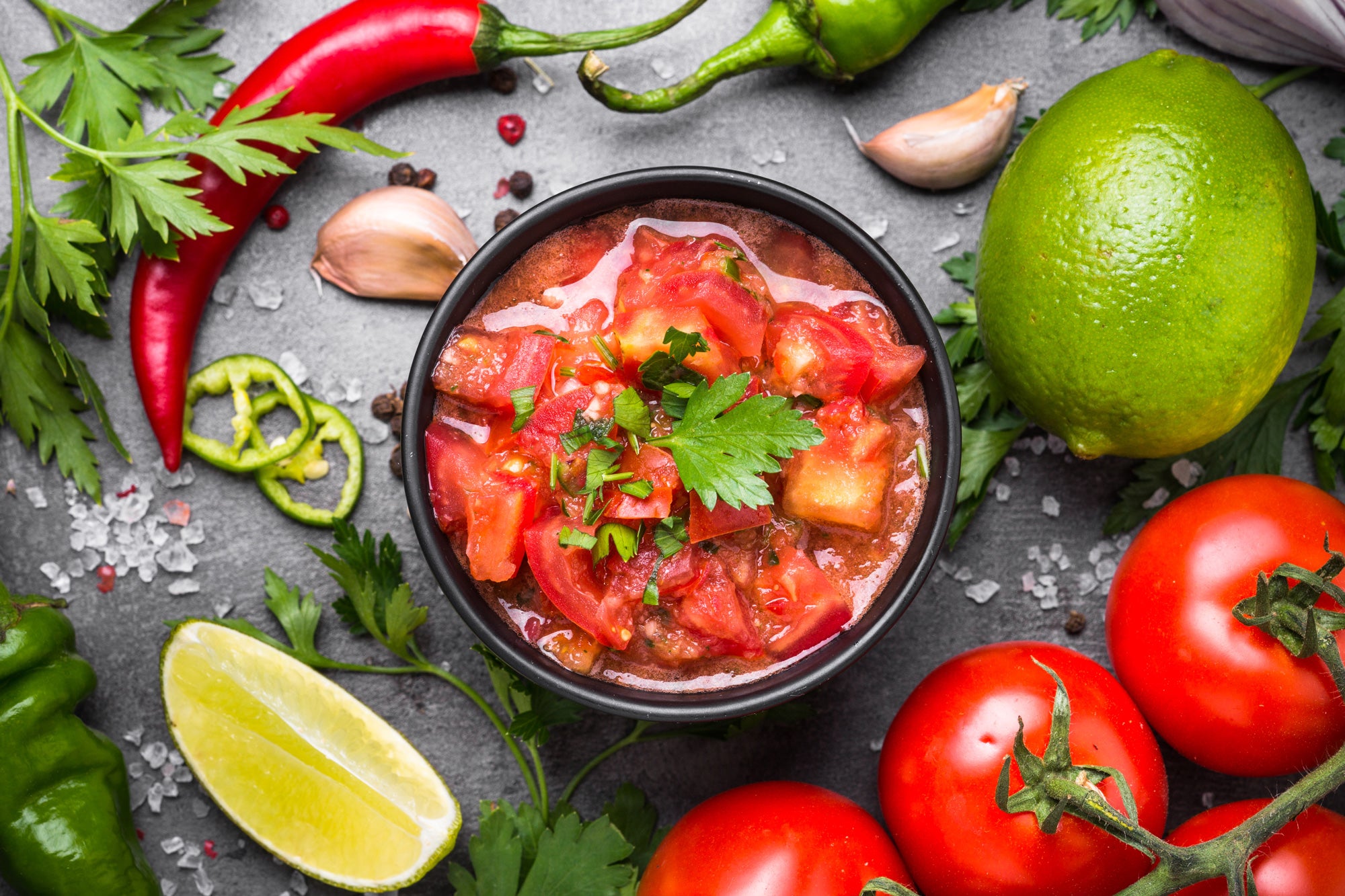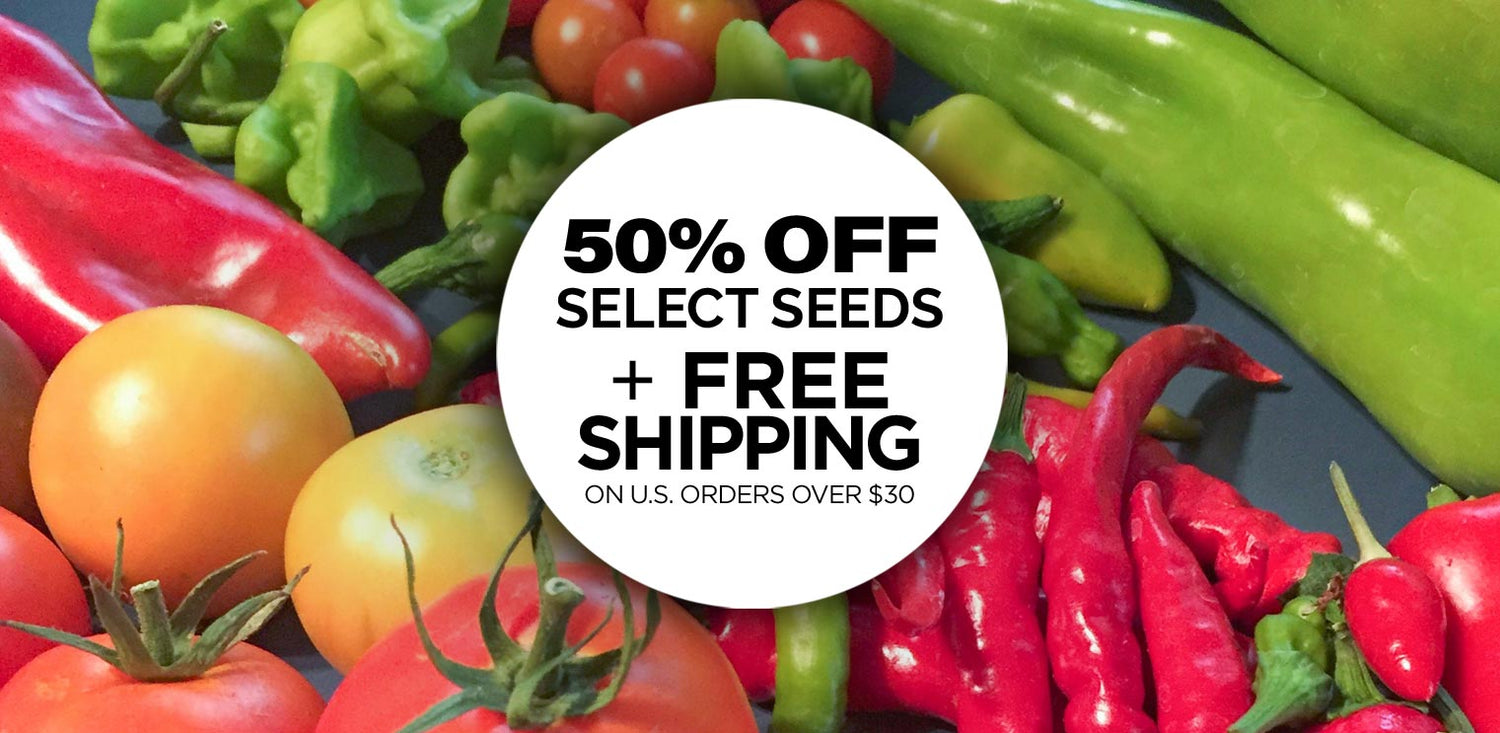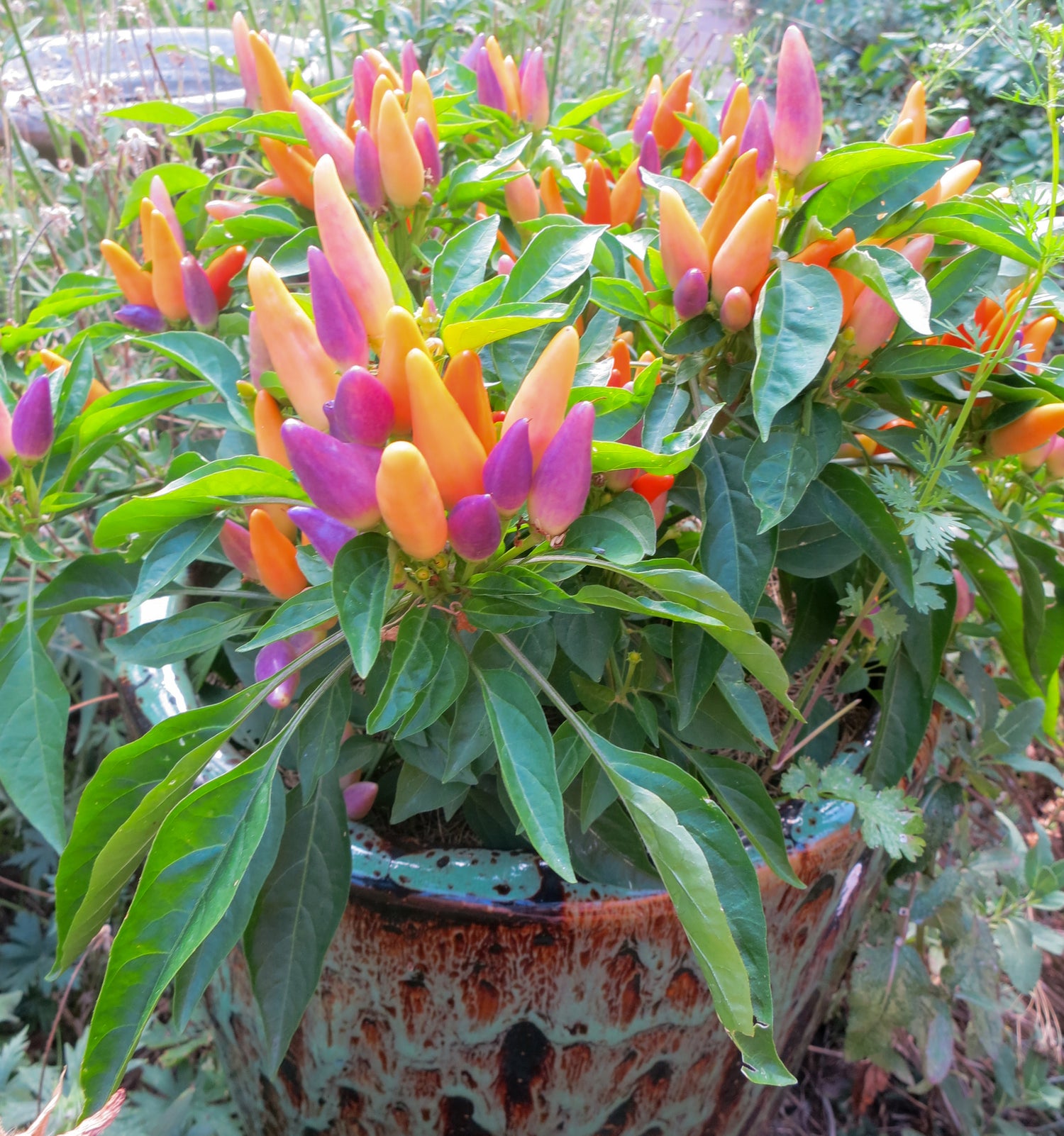
What is the best hot pepper growing advice you have ever received?
-
Just go for it! Some people just don't try. Grow some of the fastest growing peppers to start, as they are easier to germinate and you get to harvest them much sooner than some other varieties such as many of the super hot peppers. These fast growing peppers are also great for short season gardening – so you can get plenty of peppers before your first frost.

-
Start Seeds Indoors: We recommend starting hot pepper seeds indoors under lights at least 8 weeks before planting in your garden. This will give them a head start, keep them warm for the best germination and early growth. Heat mats help a lot, pepper seeds like 80-90˚ F for best germination. Make sure to transplant them if they outgrow their space, if you see roots coming out of the bottom of your growing containers, it's time to pot them up! Peppers with deep root systems are the best for faster production. We do recommend that you keep your hot pepper plants under grow lights for faster growth, learn about the best lights for seedlings »
-
Patience: Pepper seeds take longer to sprout than most vegetables, and take longer to grow into large plants. Let the peppers fully mature to their final color if possible (red, orange, yellow, depends on the pepper). The ripest peppers are usually the sweetest and tastiest, though people also harvest some peppers green, such as green chile, bell peppers, and jalapenos, which are also delicious!! Learn how to you know when to pick peppers »
-
Make sure to have good soil: yes, soil matters - you want well-draining, compost rich soil for your peppers. We like to add homemade compost in our pepper gardens each year.
-
Heat mats for starting seeds: Keeping pepper seeds warm is your best chance of success, they like it to be 80-90˚ F for best pepper germination.
-
Watch out for aphids and other pepper pests: Squirt them off with a hose daily to help keep them at bay, plus plant flowers (especially natives) around your pepper garden to attract beneficial insects to do the pest control for you.
-
Water when needed, not more: Peppers really don't like soggy feet, so let them dry out a bit between watering for the best plant health and heat in your peppers. Yellow leaves on your pepper plants is most often caused by over watering.
-
Be careful with fertilizer: too much can hurt your plants, and too much nitrogen later in the season can result in peppers plants with no blooms or peppers. We like to use organic fertilizers and we don't over do it, if anything we under-fertilize and make sure to use compost to boost the soil nutrients. Learn more about why your pepper plants don't have any peppers »
-
Stop expecting too much too quickly: Most peppers are not the fastest growing vegetables, and they take awhile to really get going. They like warm weather, and don't like soggy soil, so if you have cool weather or lots of rain, be patient as your peppers may slow down growth until the dry heat returns. Grow the fastest growing peppers for rapid growth, but keep in mind that weather and watering can still affect their speed. Many Hot Peppers and especially Super hot peppers take much longer to mature, check the seed packets of peppers for details on their days to harvest. Jalapeno seeds, for example are one of the fastest germinating and fastest growing peppers with some Jalapeno varieties beginning to harvest at just 65 days from starting from seed (if the conditions are right!)
-
Shade Cloth on super hot days: Some pepper growers swear by shade cloth to help their peppers flourish on the hottest days of summer. If temperatures are above 90˚ F, shade cloth will help keep your peppers cooler for better production. Peppers will drop blossoms in high temperatures over 90˚ F.
-
Prune your Peppers: We like to pinch off the first few blossoms on our small pepper seedlings so they put more energy into growing bigger before producing pods.
-
No room? Grow peppers in pots: Add to your gardening space with containers! Did you know you can also grow peppers year-round if protected from frost (either in a tropical climate or you bring your peppers indoors under lights for the winter). One huge benefit is that you can move your pots where ever the sun is, and another bonus is that you can bring your containers indoors in a protected spot during late cold spells from spring/fall storms or frosts so you can keep them growing much longer. Learn more about growing peppers in pots »
Did you know you can also grow peppers year-round if protected from frost (either in a tropical climate or you bring your peppers indoors under lights for the winter). Learn how long peppers live »




















